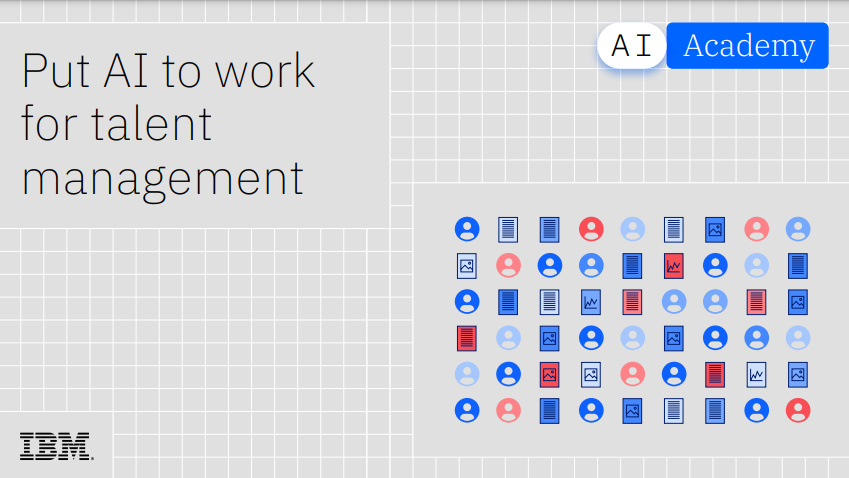How to grow your company through Business Intelligence
Simon Jones explains how to maximise business growth through good communication and good IT planning.

Virtually every company will benefit from some Business Intelligence through clever use of information technology (IT). It might only be to keep a list of previous clients so you can get back in touch with them to drum up repeat business, or it might be a small database of stock you hold so you don't have to scan shelves when a potential customer phones to ask if you've got such and such a widget.
The trick is to make the IT systems you have work to your best advantage all the time and grow when you need them to, without causing too much pain either in adjusting your working practices or in the bank balance.
When you're a one or two man band, IT is easy - with a cheap PC or two, and a simple, off-the-shelf application, you can manage perfectly well. But, if you don't have a well thought-out IT policy it's easy to drift along thinking things are okay without realising your system isn't helping as much as it could, or even that it's actively holding you back.
Here's how things often go with growing businesses. As you grow you accumulate more staff, whose IT needs are met with new, cheap computers bought off the shelf at a retail store. They come with different versions of Windows and Office to the ones you've already got which are now a couple of years old. The PCs don't talk to each other and, if you're unlucky, neither do the people.
You buy a small server to try to network the PCs but the applications you use stay on the individual PCs, each with their own data. By now you've outgrown the one room you started in so the whiteboard you've used til now to keep everyone up-to-date with important information isn't being read by some and isn't being updated by others.
You try to get everyone to store their data on the server but security is a problem. Either people can't get at the data and documents or people have access to sensitive documents which ought to remain private.
People create their own spreadsheets to hold extra data that doesn't fit into the off-the-shelf application you use to manage your business. This means they have to type some data twice - once into the main application and again into the spreadsheet. Human nature means that some of the double entered data contains mistakes. (All data has some mistakes but entering it twice doubles the chance of getting it wrong.)
Get the ITPro daily newsletter
Sign up today and you will receive a free copy of our Future Focus 2025 report - the leading guidance on AI, cybersecurity and other IT challenges as per 700+ senior executives
Worse, the spreadsheets get emailed between people and no-one quite knows which one contains the most up-to-date information.
Knowing there are problems with some data makes some staff over-cautious and they spend too much time checking the data and not enough time doing their own job. Other staff, unaware of the problem, have mistaken faith in the data they get from the computers and promise customers things at the wrong price or that they can't deliver.
Wrong decisions are made or perhaps no decision is made because people are unsure of the data or some vital data isn't available when it's needed. Either way your IT systems have become a hindrance rather than a help.
Does any of that sound familiar?
Click the link below to read the full white paper, written by PC Pro contributing editor Simon Jones.
-
 Bigger salaries, more burnout: Is the CISO role in crisis?
Bigger salaries, more burnout: Is the CISO role in crisis?In-depth CISOs are more stressed than ever before – but why is this and what can be done?
By Kate O'Flaherty Published
-
 Cheap cyber crime kits can be bought on the dark web for less than $25
Cheap cyber crime kits can be bought on the dark web for less than $25News Research from NordVPN shows phishing kits are now widely available on the dark web and via messaging apps like Telegram, and are often selling for less than $25.
By Emma Woollacott Published
-
 Put AI to work for talent management
Put AI to work for talent managementWhitepaper Change the way we define jobs and the skills required to support business and employee needs
By ITPro Published
-
 More than a number: Your risk score explained
More than a number: Your risk score explainedWhitepaper Understanding risk score calculations
By ITPro Published
-
 Four data challenges holding back your video business
Four data challenges holding back your video businesswhitepaper Data-driven insights are key to making strategic business decisions that chart a winning route
By ITPro Published
-
 Creating a proactive, risk-aware defence in today's dynamic risk environment
Creating a proactive, risk-aware defence in today's dynamic risk environmentWhitepaper Agile risk management starts with a common language
By ITPro Published
-
 How to choose an HR system
How to choose an HR systemWhitepaper What IT leaders need to know
By ITPro Published
-
 Sustainability and TCO: Building a more power-efficient business
Sustainability and TCO: Building a more power-efficient businessWhitepaper Sustainable thinking is good for the planet and society, and your brand
By ITPro Published
-
 What is small data and why is it important?
What is small data and why is it important?In-depth Amid a deepening ocean of corporate information and business intelligence, it’s important to keep things manageable with small data
By Steve Cassidy Published
-
 Microsoft's stellar cloud performance bolsters growth amid revenue slump
Microsoft's stellar cloud performance bolsters growth amid revenue slumpNews The tech giant partly blames unstable exchange rates and increased energy costs for the slowdown
By Rory Bathgate Published